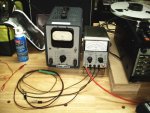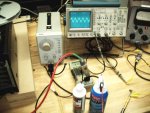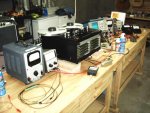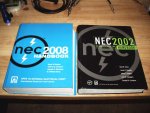I remind you that it was you and VP that first starting talking down digital, not me talking down tape. My first statement was quite "fair and balanced"

Reread page 1. Read my first post, VP's first post, your first post. Reread where OP asked for a "scientific study".
And I still have my Tascam 424mkII, which I bought in 1997 and used regularly until about 2003, when I bought a better recorder for mobile use, an Alesis HD24. I don't do mobile multitrack recording anymore so I sold the HD24, but the 424 I have kept because it isn't really worth selling. Besides, I never finished transferring all of my old tapes. Someday.
So I pretty much know from six years of using it that the 424 isn't anywhere near as good sounding as the digital stuff I have now, which is why I don't use the 424 anymore.
I mean the specs are right here on this site!
https://homerecording.com/tas424specs.html
1% THD and 0.05% flutter, 40Hz to 16kHz frequency response +/-3dB at 3.75ips; dynamic range of 55dB (without NR which I never liked the sound).
The converters I am using--which are six years old now--I just measured D/A/D at .001% THD, 0.00006% jitter, freq. response is +/-0.3dB from 5Hz to 40kHz (at 96kHz), dynamic range (20kHz bandwidth, unweighted) is 115dB.
Beck talks about how digital stuff just gets obsolete, which he takes as nonfunctional. That's not true, plenty of old digital stuff works fine (my computer is c. 2005, soundcard is c. 2003, I prefer a version of Wavelab from 2004 and the good ol' UAD-1 from 2002), people just trade up for newer stuff. So the old digital becomes basically worthless . . . exactly the same thing that happens to old tape recorders. I paid I think $600 for the Tascam in 1997. It's worth about $75 now. Old digital is about the same; 10%-20% of original value after ten years, beyond that only if it has collector value which a fair amount of stuff does, oddly enough. People get attached to things, like the soundcard I originally used, the DS2416. Great card with great capabilities that were never fully realized, then it got abandoned. Kinda sad, but I moved on.
I paid $600 for that in 2000 . . . today they are also worth $75 and they still have their following.








 .... (Jonathan Scull .... formerly at Stereophile) ......
.... (Jonathan Scull .... formerly at Stereophile) ......  Reread page 1. Read my first post, VP's first post, your first post. Reread where OP asked for a "scientific study".
Reread page 1. Read my first post, VP's first post, your first post. Reread where OP asked for a "scientific study".